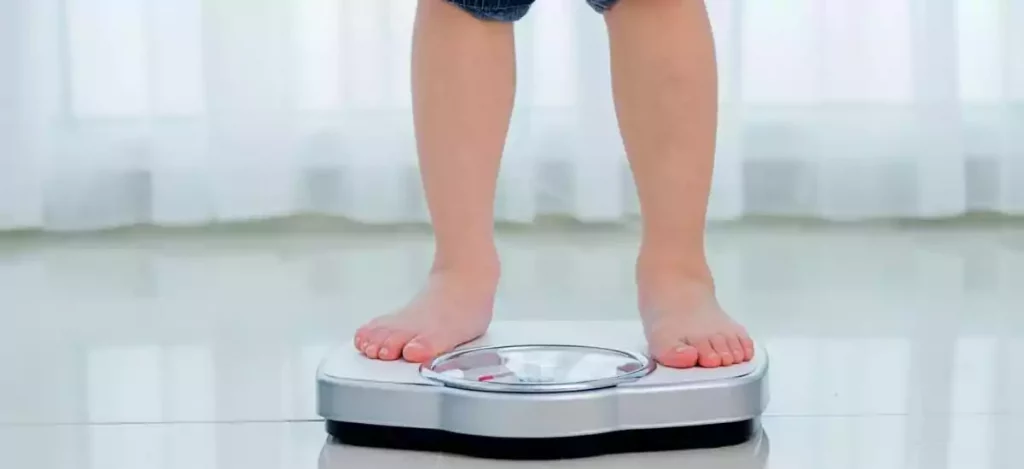Being a teenager can be challenging not only for your child but also for their parents. While you may have endured your child’s “terrible twos” when they cried for hours at night, coping with a teenager can cause many of you anxiety. This is when your child will experience physical and behavioral changes due to hormonal changes.
This is also when your child’s peers assume a greater part in their life, leaving you feeling abandoned. According to child psychologist Niru Chheda, adolescence is a particularly delicate phase, and parenting an adolescent is quite challenging, especially in today’s technologically advanced society.

Making healthy judgments about what your child eats and drinks, how physically active they are, and how much sleep they get is an excellent starting point.
Here are the average height of 12-Year-Old, 13-year-olds, 14-year-olds, 15-year-old, and so on:
| Age | Average Height Of Girls | Average Height Of Boys |
| Average Height Of 10-Year-Old | 50 to 59 inches | 50.5 to 59 inches |
| Average Height Of A 11-Year-Old | 52. 4 inches | 60 inches |
| Average Height Of A 12-Year-Old | 55 to 64 inches | 54 to 63.5 inches |
| Average Height Of A 13-Year-Old | 63 inches | 67 inches |
| Average Height Of A 14-Year-Old | 59 to 67.5 inches | 59 to 69.5 inches |
| Average Height Of A 15-Year-Old | 60 to 69 inches | 60 to 70 inches |
| Average Height Of A 16-Year-Old | 60 to 69 inches | 63 to 73 inches |
| Average Height Of A 17-Year-Old | 61 to 69 inches | 62 to 72 inches |
| Average Height Of A 18 Year Old | 60 to 68.5 inches | 65 to 74 inches |
| Average Height Of A 19-Year-Old | 62 to 70 inches | 67 to 75 inches |
| Average Height Of A 20-Year-Old | 70 to 82 inches | 72 to 85 inches |
The Ideal Way To Calculate Your BMI
The Body Mass Index is easily calculated using a person’s height and weight. BMI = kg/m2, where kg stands for a person’s weight in kilograms and m2 stands for height in meters. Overweight is defined as a BMI of 25 or more, while the healthy range is 18.5 to 24.9. BMI applies to most persons aged 18 to 65.
Who Shouldn’t Use A BMI Calculator?
The BMI is not utilized for bodybuilders, distance runners, pregnant women, the elderly, or children. This is since BMI does not consider whether the weight is maintained as muscle or fat; just the number is considered.
Athletes and others with a high muscle mass may have a high BMI but are not at increased health risk. Those with a lower muscle mass, like growing youngsters or the elderly who may be losing muscle mass, may have a lower BMI. Since a woman’s body structure changes throughout pregnancy and nursing, BMI is inappropriate.
How To Increase Height – Essential Factors That Influence Teenagers’ Growth.
Various things determine your overall height. Genetic factors are responsible for 60 to 80 percent of your total height. Typically, the remaining proportion is governed by factors outside personal control, such as nutrition and activity.
Between ages 1 and 15 years old, several people grow roughly 2 inches a year. You will start growing at 4 inches each year after you approach puberty. However, every person matures at their rate.

Girls frequently go through this growth cycle during their teenage years. Boys may not experience this abrupt growth until the conclusion of their teen years. The process of growing taller ends once you reach adolescence. So, as a grownup, your height isn’t going to increase.
Nevertheless, you can do things in your teens to guarantee that you are optimizing your growth potential. To remain tall and enhance your well-being, you should continue the following activities as an adult.
Conscious Eating
As you grow, you must ensure your body consumes all the nutrients it requires. It is crucial to keep a balanced diet for overall well-being. A balanced diet may contain:
- Fruits and vegetables
- Whole grains
- Proteins
- Lactic products
Get Adequate Sleep
Getting sufficient sleep may improve HGH (human growth hormone) synthesis. It is suggested that:
- Newborns up to 3 months sleep 14 to 17 hours daily, whereas infants aged 3 to 11 sleep 12 to 17 hours daily.
- toddlers ages 1 to 2 receive 11 to 14 hours
- Young children aged 3-5 receive 10-13 hours each day.
- aged 6 to 13 get 9 to 11 hours
- teens ages 14-17 receive eight to 10 hours
- Adults aged 18 to 64 receive seven to nine hours of sleep per night.
- 65 and older adults receive seven to eight hours
It’s also worth noting that according to this dentist who does Zoom teeth whitening in Redwood City CA, continuous sleep deprivation can cause or worsen existing gum diseases.
Do Your Exercise
Regular exercise brings numerous benefits. It aids in weight maintenance and stimulates HGH synthesis. Children and adults can perform strength-building exercises, such as pushups or sit-ups, and flexibility exercises, such as yoga and cardiovascular activities.
Average Weight
Here are the average height of 11-Year-Old, 16 years old, and so on:
| Age | Average Weight Of Girls | Average Weight Of Boys |
| Average Weight Of 10-Year-Old | 54 to 106 pounds | 54 to 102 pounds |
| Average Weight Of 11-Year-Old | 75 pounds | 80 pounds |
| Average Weight Of 12-Year-Old | 68 to 136 pounds | 66 to 130 pounds |
| Average Weight Of A 13-Year-Old | 94 pounds | 99 pounds |
| Average Weight Of A 14-Year-Old | 84 to 160 pounds | 84 to 160 pounds |
| Average Weight Of A 15-Year-Old | 114 pounds | 127 pounds |
| Average Weight Of A 16-Year-Old | 94 to 172 pounds | 104 to 186 pounds |
| Average Weight Of A 17-Year-Old | 116 pounds | 153 pounds |
| Average Weight Of A 18 Year Old | 100 to 178 pounds | 116 to 202 pounds |
| Average Weight Of A 19-Year-Old | 145 pounds | 174 pounds |
| Average Weight Of A 20-Year-Old | 234 pounds | 245 pounds |
Elements Influencing Teenagers’ Weight?
- Unhealthy snacking between meals can lead to weight gain by accumulating additional calories. This frequently occurs when adolescents feel “bored” and periodically visit the kitchen or refrigerator in search of food that helps them feel better.
- The adolescent must engage in sufficient physical activity to maintain excellent health. Teens who lack physical activity will inevitably gain weight.
- In and of itself, puberty may not cause significant weight gain. However, the growth spurt often causes increased hunger, which may increase weight gain in adolescents who overeat and do not engage in sufficient physical activity.

Complications Of Being Underweight Or Overweight
Whether a person has a positive or negative energy budget ultimately determines whether they have a normal weight, are overweight or are underweight. While most societal attention is focused on the health hazards associated with being overweight or obese, both extremes of the weight continuum are connected with health issues. Being underweight can also severely affect health.
Overweight
- Cardiac disease
- Hypertension
- Stroke
- Osteoarthritis
- Cancers
- Type 2 diabetes
- Physical difficulty with movement
- Sleep apnea
- Reduced quality of life
- Depression and nervousness

Underweight
There are specific health hazards associated with being underweight or consuming inadequate nourishment. Among these dangers are
- Malnutrition, vitamin deficits, and anemia! Take a glance at the best vitamins for teens here: What Are The Best Vitamins For Teens?
- Osteoporosis resulting from inadequate vitamin D and calcium
- Surgical teenage problems are more likely to occur when immune function is impaired.
- Issues with growth and development, particularly in children and adolescents, are caused by irregular menstrual cycles.
Have a look at some teenage problems: The Most Common Teenage Problems!
Using And Interpreting Growth Charts For Teens
Growth charts are a valuable tool pediatricians use to monitor how children grow and change. These charts provide different age groups’ height, weight, and head circumference information.
Because teens have different needs than younger children, the Centers for Disease Control and Prevention has specific growth charts for girls between 13-20 years old and boys between 13-20 years old.
It’s important to note that these growth curves don’t apply to adults or anyone older than 20 years of age because their changes in height are due to other factors like hormones rather than physical growth.
Ideal Calorie Intake
| Age | Calories For Boys | Calories for Girls |
| Ideal caloric intake for a 12-year-old | 1,600 per day | 1800 per day |
| Ideal caloric intake for a 13-year-old | 2000 per day | 2200 per day |
| Ideal caloric intake for a 14-year-old | 2200 per day | 2400 per day |
| Ideal caloric intake for a 15-year-old | 2500 per day | 2700 per day |

How Many Calories Does A Teenager Need In A Day?
The body requires more calories during the teen years than at any other point. On average, boys require 2,800 calories per day. On average, girls require 2,200 calories per day.
How Does Puberty Affect Teenagers?
Okay, so it’s a funny word, but what exactly is puberty? Puberty is when a person’s body begins to mature and transform. Your body will grow quicker during puberty than at any other moment, except when you were an infant. It’s beneficial to be aware of puberty’s changes before they occur, and it’s crucial to remember that everyone goes through them. Changes in your child’s brain initiate the release of sex hormones from the gonads, which consist of the ovaries and testes.

This normally occurs between 10-11 years old for girls and 11-12 for boys. Normal ranges for the onset of puberty in females and boys are 8-13 years and 9-14 years, respectively. Acne can come on your face during puberty and it can affect your self-image. Check here to find details on How Does Acne Affect Your Teen’s Self-Image? Puberty can last anywhere between 18 months and 5 years. This range is also perfectly typical.
When the teenager becomes 14 year old, the brain releases a specific hormone that initiates puberty. It is referred to as GnRH or gonadotropin-releasing hormone. Typically, puberty begins between 7 and 13 in females and 9 and 15 in males. Some individuals begin puberty earlier or later than others.
Tips For Teenager’s Healthy Lifestyle
Teens frequently place dating, socializing, and homework ahead of their physical, mental, and emotional well-being. However, encouraging kids to adopt a few healthy behaviors will keep them healthy and happy now and in the future.
Physical Health Is The Maintenance Of One’s Physique.
- Regular exercise is encouraged. Adolescents should engage in at least 60 minutes of physical activity every day. Plan a balanced lifestyle and diet.
- Consume a nutritious diet. A healthy diet is essential to your growth and development. Consume a mix of fruits and vegetables, healthy grains, protein sources, and low-fat dairy products.
- Uphold a healthy weight. Obese children and adolescents are more probably to be obese as adults. Additionally, they are at increased risk for other chronic diseases, despair, and bullying.

Taking Care Of Your Mental Health
- Learn stress management techniques. You cannot avoid stress. Therefore you must develop effective coping strategies. This will guide you in remaining cool and working in difficult situations.
- Maintain a positive rapport with your parents. Remember that they want the best for you. Consider their perspective when they establish rules. The best gift you can give to yourself is maintaining mental health.

Behavioral Health: Ensuring Your Security Through Your Actions
- Avoid drug usage and abuse. This includes alcohol, illicit drugs, prescription medicines from other persons, and any tobacco product or vaping form. Check Why Is Vaping Bad For Teens? to know all the ins and outs.
- Drive carefully. Vehicle collisions are the biggest cause of mortality for youths in the United States. Always wear a seatbelt. Avoid traveling in a vehicle filled with other adolescents. This can distract the motorist and increase the likelihood of an accident. Never ride with a driver who has consumed alcohol.
- Use a protective helmet. Wear a helmet to prevent head injuries when riding a bicycle or engaging in sports. Check tips to drive safe here!
